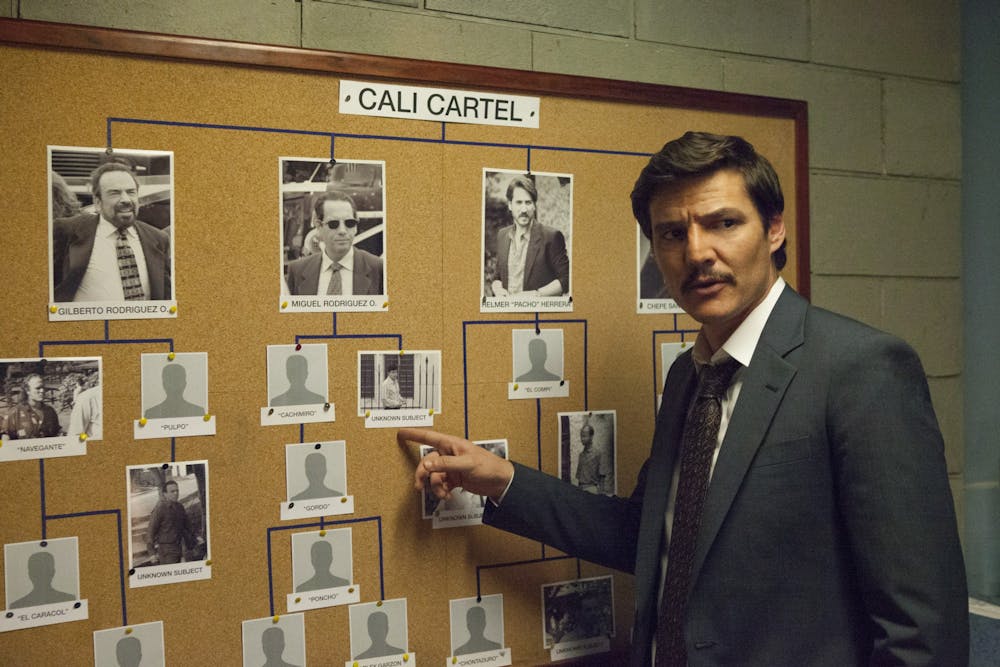Recently, I began watching the Netflix show “Narcos,” which follows the criminal exploits of Colombian drug lord Pablo Escobar. It is based on true events and so far, I have been surprised at how much turmoil one person could seemingly cause within a country. Nowadays, the drug lord narrative is used heavily and is oftentimes successful in gaining attention, mainly because producers will overdramatize the historical event in order to make it more entertaining.
Immigrants, specifically from Latin America, have been targeted with stereotypes having to do with drugs and violence. As narratives like “Narcos” continue to surface, I begin to wonder how these portrayals of Latino culture may influence the harmful stereotypes already associated with them.
To most Colombians, the violence Escobar caused was not witnessed on a screen decades later, but rather through lived experiences.
With stories like Escobar's being told through the lens of actors, actresses and dramatized scenarios, I fear that there is an increasing lack of understanding for the real life experiences people have had from the drug wars in their home countries.
[Related: COLUMN: Latinx artists you should listen to during Hispanic Heritage Month]
Generally, media outlets have the power to shape opinions on groups of people, and it seems that portrayals of drugs and violence concentrated in one country may be affecting how Latino culture is seen. For example, “Narcos” portrays Colombia as primarily violent and cruel.
When a real life event is turned into entertainment, the reality of a certain situation can be lost. By turning Escobar's story into television, audiences begin to see the events as something to be used as entertainment rather than as important and tragic historical events.
Similarly, when a TV show depicts the violence and cruelty of powerful people within a culture, I worry audiences will take this as a representation of the entire culture.
As a whole, media outlets in general have the power to spread and shape negative stereotypes about groups of people, including those from Latin American countries.
Within the show, there is little representation of what Latino culture is beyond drug and gun violence. At one point, there were about 3.2 million people viewing “Narcos.” With such a wide range of people, shows like these will probably continue to be made since its audience attraction is so wide.
Since its release, “Narcos” has been credited to adding to Netflix’s soaring earnings. It seems ironic that the U.S., which holds such harsh stereotypes about Latino culture, can benefit so heavily from the sufferings of their livelihoods.
[Related: Members of IU's Hispanic community push for celebration past Hispanic Heritage Month]
I myself don’t think it’s okay for people who did not have to experience this kind of violence to take the stories of others and profit off of a TV show made for American media companies like Netflix.
In the future, I hope people understand that a TV show does not comprise one's entire culture. There is more to Latin America than the cruelty depicted in American television and the suffering caused by drug cartels. These events should not be a means for us to entertain ourselves.
Carolyn Marshall is a sophomore majoring in Media Studies focusing in tv, film, and digital production with a minor in English.






